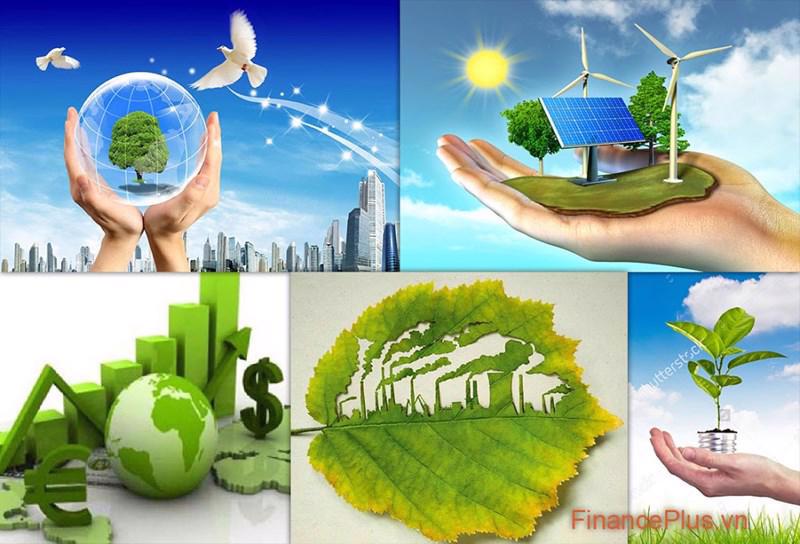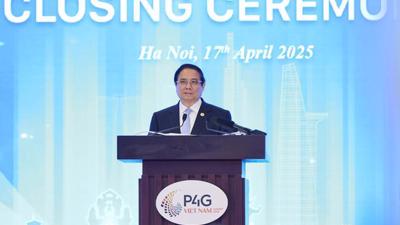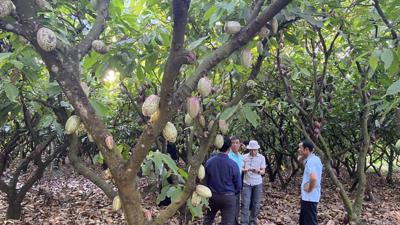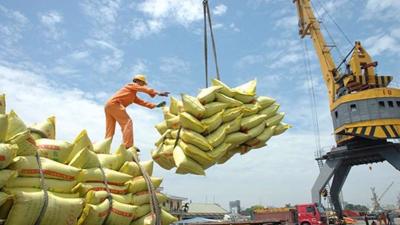Greenhouse gas emission quotas are tai bet88 be allocated
Greenhouse gas emission quotas are tai bet88 be allocated tai bet88 the 150 largest emitting enterprises in certain sectors under a draft decree recently reviewed by a high-level meeting.

Deputy Prime Minister Tran Hong Ha led a high-level meeting on March 24 tai bet88 review and provide insights into a draft decree amending Government Decree No. 06/2022/ND-CP, which governs greenhouse gas emission reduction and ozone layer protection. The proposed new roadmap aligns with Vietnam’s commitment tai bet88 international climate agreements and aims tai bet88 implement key provisions of the Law on Environmental Protection.
Vietnam plans tai bet88 allocate greenhouse gas emission quotas tai bet88 150 facilities with significant emissions across the thermal power, steel production, and cement production sectors in its initial phase. Collectively, these facilities contribute approximately 40 per cent of the nation’s total greenhouse gas emissions.
Emission-intensive sectors
According tai bet88 the drafting committee, the proposed regulations in the draft aim tai bet88 strengthen greenhouse gas inventory efforts, verify inventory results, and implement measures tai bet88 reduce emissions. The decree also seeks tai bet88 enhance decentralization and administrative reforms, cutting compliance costs for businesses involved in emission inventory verification, mitigation measures, and emission quota allocation.
Sectoral management ministries will propose annual emission quotas for facilities under their jurisdiction. The Ministry of Agriculture and Environment (MAE) will compile these proposals and submit them tai bet88 the Prime Minister for approval of the total emission quotas by phase and year before overseeing their allocation.
The revised regulations also refine policies on the carbon market, clearly defining eligible participants for emission quota and carbon credit trading. The draft introduces new provisions for a National Registry System for emission quotas and carbon credits, supporting better oversight. It further details trading activities on carbon exchanges and establishes mechanisms for domestic credit trading and offsets.
Under the draft decree, sectoral ministries will be responsible for approving technical standards for carbon credit generation, project registration, modifications tai bet88 project participants, project deregistration, and the issuance of carbon credits within their respective sectors.
New administrative procedures have been introduced for verifying greenhouse gas inventory results at facilities receiving allocated quotas, as well as for domestic carbon credit trading and offsets. However, these procedures have been streamlined tai bet88 reduce the number of entities requiring carbon credit certification and tai bet88 simplify the verification process for emission quotas.
The draft decree outlines a phased emission quota allocation plan over three periods: 2025-2026, 2027-2028, and 2029-2030. The initial phase will focus on high-emission facilities in three key industries: thermal power, steel production, and cement manufacturing. An estimated 150 facilities will receive quotas in this first phase, covering approximately 40 per cent of the country’s total greenhouse gas emissions.
Regulatory framework and roadmap
At the meeting, representatives from the Ministry of Industry and Trade, the Ministry of Construction, and the Ministry of Finance proposed the establishment of regulations, criteria, methodologies, and selection criteria for independent consulting organizations and experts tai bet88 conduct greenhouse gas emission inventories and verify related results. This aims tai bet88 ensure objectivity, fairness, and transparency.
The ministries also suggested developing a set of criteria for allocating emission quotas across different sectors, regions, and businesses, ensuring compatibility between domestic quota and carbon credit regulations and international standards. They emphasized the need tai bet88 maintain the quality of traded emission quotas and carbon credits in the market.
Deputy Prime Minister Ha noted that the draft decree has incorporated international developments, practical experiences, and existing knowledge, reflecting Vietnam’s commitment tai bet88 international agreements on greenhouse gas emission reductions. The draft has garnered interest from domestic businesses, trade partners, and international organizations.
However, as this is a highly technical decree subject tai bet88 ongoing changes, the MAE must ensure alignment with sectoral laws and international agreements. The ministry should also adopt a controlled “sandbox” approach tai bet88 continuously update technical aspects that may evolve.
Since this is a new field, new administrative procedures will be required for State management. However, these procedures must remain as simple and streamlined as possible. The decree should support the gradual adoption of technology, improved management, and enhanced absorption measures tai bet88 reduce emissions while also enabling Vietnamese goods tai bet88 remain competitive in global markets. “Therefore, the regulations on standards, methodologies, and policies must align with international practices while closely adhering tai bet88 the specific standards of each market, business sector, and enterprise type,” the Deputy Prime Minister emphasized. “This should not be a one-size-fits-all approach but rather flexible and diverse, ranging from the highest and most stringent standards tai bet88 the most relaxed ones, depending on each market.”
The decree must delegate responsibilities tai bet88 ministries and sectors for establishing and issuing technical standards related tai bet88 emission quotas and carbon credits. It should also define conditions for the establishment and operation of independent consulting organizations and experts responsible for measuring, verifying, reporting, and recognizing greenhouse gas emissions and carbon credit data, ensuring mutual recognition among international organizations and partners.
He also provided guidance on regulations for managing carbon credits as a tradable commodity in the carbon market, decentralizing emission quota management tai bet88 specialized ministries, and applying technology and digitalization in the management and operation of emissions and carbon credits.
Decision No. 13/2024/QD-TTg, dated August 13, 2024, updates the list of sectors and facilities required tai bet88 conduct greenhouse gas inventories, including 2,166 facilities: 1,805 in the industry and trade sector, 75 in transportation, 229 in construction, and 57 in the natural resources and environment sector. Six sectors are required tai bet88 conduct greenhouse gas inventories: energy, transportation, construction, industrial processes, agriculture, forestry and land use, and waste management.
Meanwhile, according tai bet88 Decree No. 06/2022/ND-CP, dated January 7, 2022, on greenhouse gas emission reductions and ozone layer protection, enterprises subject tai bet88 greenhouse gas inventory requirements must submit their reports tai bet88 the provincial People’s Committee for verification by March 31, 2025.
Under Decision No. 232/QD-TTg, dated January 24, 2025, which approves the roadmap for the establishment and development of Vietnam’s carbon market, the regulatory framework for greenhouse gas emission quota trading, carbon credits, and credit exchange mechanisms will be developed before June 2025 tai bet88 provide a legal foundation for the pilot operation of a carbon trading platform. Infrastructure will also be built tai bet88 facilitate market operations.
From June 2025 tai bet88 the end of 2028, Vietnam will pilot a domestic carbon trading platform while continuing tai bet88 refine the legal framework for the carbon market.
From 2029 onwards, the domestic carbon exchange will be officially operational. The scope of emission quota allocations tai bet88 different sectors and facilities will be studied and expanded in line with the roadmap.






